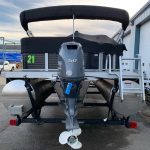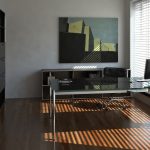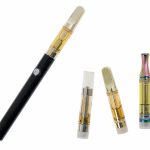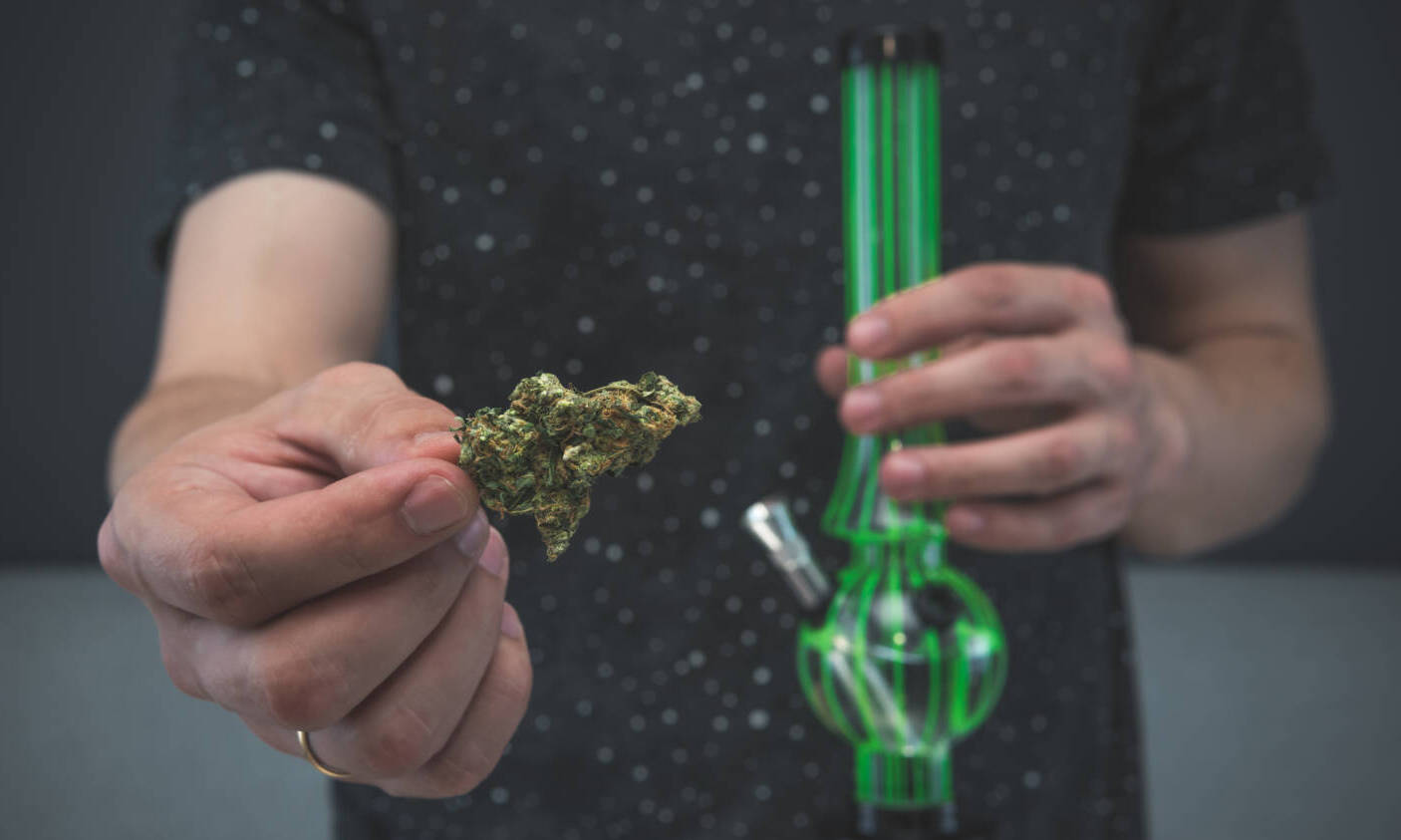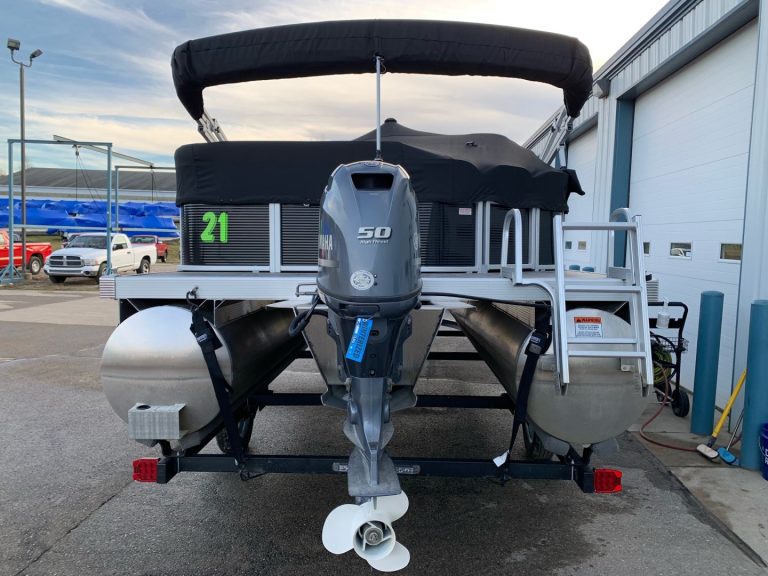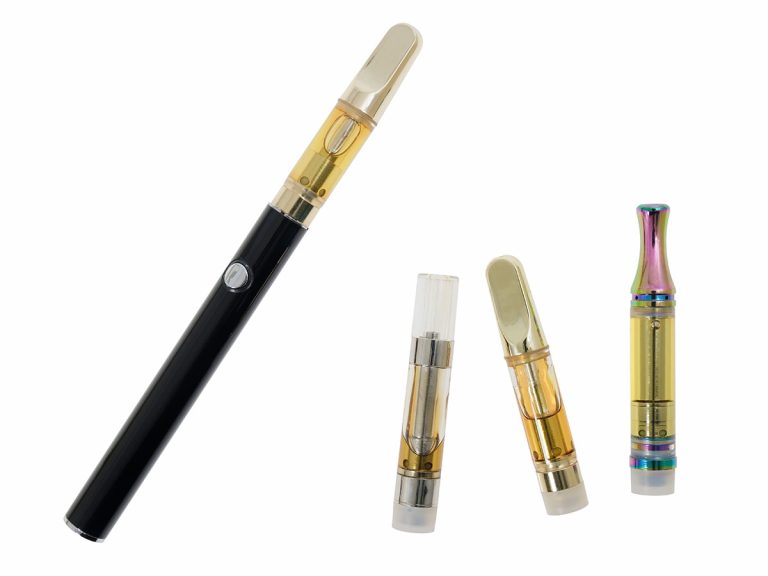Category: Health
Discover more about top anti-snoring devices
Suppose you are suffering from problems sleeping because people face some underlying problems. One such problem is snoring, people find snoring very embarrassing, and many causes are there which cause snoring. Many factors can cause snoring, such as allergies, colds, or weight. There might be more, but if you want to treat, you can try some the top anti snoring devices. The device will help you control your snoring and sleep comfortably. Through this article, you will get the facts about these devices.
Why do we need anti-snoring devices?
Snoring regularly may be more than just a nuisance. If snoring is associated with OSA, you may be at risk for several additional complications, including:
Sleepiness during the day, frequent frustration or rage, difficulty concentrating, and a higher risk of high blood pressure, heart disease, and stroke in children with OSA. An increased risk of motor vehicle accidents as a result of not getting enough sleep. These risks can be experienced if snoring is not treated correctly. Some may be confused that snoring is equivalent to deep sleep, but snoring can be dangerous.
Some advanced devices that will stop snoring
Mandibular advancement devices
These devices are used to stop the tongue’s base vibration that causes snoring. They move the lower jaw and tongue forward to make more room for airflow in the pharynx. This stops the tongue from vibrating in this area.
A ready-made thermoplastic MAD can be purchased and sized in the patient’s home. People with strong gag reflexes or who can’t sleep with appliances in their mouths may not like or tolerate these devices. In the initial days, it may cause jaw and face pain. People with OSAS should get a MAD made by a dentist, but these are much more expensive.
Modern MADs are lighter, less bulky, and even micro-adjustable, allowing each individual to adjust the amount of jaw protrusion to stop snoring without putting too much strain on the facial and jaw muscles.
Tongue-retaining devices
Another oral appliance is the TRD, which stops the tongue from falling back while sleeping, which many people snore because of. Through a slight negative suction, it holds the tongue tip in place. The mouthpiece also creates Mandibular protrusion, which is reduced to a comfortable level based on patient feedback.
If snoring continues despite using it, this can get worse. If the nose becomes blocked, the TRD has orifices lateral to permit mouth breathing. This may cause some discomfort initially, but it is safe and has been shown to help many people who snore. Additionally, it reduces daytime somnolence and sleeps apnea.
Can You Buy Delta 8 Vape Pen Online?
In the Vape Pen Industry, delta 8 is a well-known brand that has been around for over 14 years. They are one of the most popular brands on the market and have been proven through rigorous testing to deliver premium quality vaping experiences. Here is what you need to know in order to buy delta 8 vape pen online.
What does delta 8 have to offer?
The Delta-8 is an advanced vape pen which consists of a battery, a cartridge that contains e-liquid and various other vape components. It can be controlled in various ways such as adjusting the voltage and wattage. In most scenarios, the device is compatible with nicotine salt but you might have to purchase more variety of these if you want to switch between strength levels.
How do I buy delta 8 online?
Delta 8 pens are available in different colors and designs. They are widely available online but you can also get them from local vape shops. Currently, a five pack of Delta-8 pens is available for $49.99. The standard safety features are present in each device so the user can be confident that it won’t explode or not work properly. All the devices come with a 1-year manufacturer warranty so if you have any issues, there is no need to worry about it at all.

Where to buy delta 8?
Delta-8 comes in various colors which include red, white, blue and black. You can also go for the limited edition gold pen which is available for $50. To protect the user’s safety, a battery safety check feature is present which ensures that the device has undergone proper testing before it gets shipped to the customer. Based on certain specifications, you can check to see if your device is genuine or fake.
How to buy delta 8?
You can order the product online as you wait for it to arrive at your home. Since delta-8 is a reputable brand and widely marketed, it is difficult to get fake products. In this case, you can refer to the question “How do I buy delta 8?” if you want more insight on how to save money as well as get genuine products.
What is the difference between delta 8 and Pax?
The Delta-8 model is very similar to the Pax 2 and many other brands in the market. One of the main differences between the two models is that they have a 650mAh battery while the Pax 2 has a 900mAh or so. The battery in Delta-8 cartridges are also in a different quality as it uses a single coil design which is charged by way of magnets. One of its greatest benefits is that it can be completely disassembled to reveal more parts for cleaning.
How to Choose the Right Blood Sugar Support Supplement for You
With so many blood sugar support supplements on the market, it can be hard to know which one is right for you. There are a few key things to look for when choosing a blood sugar support supplement. First, make sure that the supplement contains ingredients that have been shown to be effective in clinical studies. Second, choose a supplement that is made from high-quality ingredients and is free from artificial additives. Finally, pick a supplement that is easy to take and that you can take on a regular basis.
Blood sugar levels:
Your blood sugar levels are important to monitor, especially if you have diabetes or prediabetes. Maintaining healthy blood sugar levels can help prevent serious complications from diabetes, such as heart disease, kidney disease, and nerve damage. There are a few different ways to support healthy blood sugar levels, including diet, exercise, and medication. For some people, a blood sugar support supplement glucofort customer reviews can also be helpful.
Supplements:
When choosing a blood sugar support supplement, it’s important to consider your overall health and any other medications you’re taking. Some supplements can interact with other medications, so it’s important to talk to your doctor before taking anything new. It’s also important to read the label carefully and choose a supplement that contains ingredients GlucoFort Review that have been proven to support blood sugar levels. Some popular ingredients include chromium, magnesium, and fibre.

Dosing:
Be sure to follow the directions on the supplement label. It’s important to take the supplement as directed in order to get the most benefit. If you have any questions about blood sugar support supplements, be sure to talk to your doctor. They can help you choose the right supplement for your needs and make sure it’s safe for you to take.
Diet:
The foods you eat can have a big impact on your blood sugar levels. Eating a healthy diet is one of the best ways to keep your blood sugar balanced. There are a few different dietary approaches that can help support blood sugar levels. The first is the glycaemic index diet. This diet focuses on foods that have a low glycaemic index, which means they don’t cause blood sugar levels to spike.
Conclusion:
Blood sugar support supplements can be a helpful addition to your overall diabetes management plan. Be sure to talk to your doctor before taking any supplements, and read the label carefully to choose a supplement that contains ingredients that have been proven to support blood sugar levels.
Get rid of the negative effects of THC
Do you know about THC and how it affects your body? If not, then it is important to understand the basic elements and then continue with the product. Basically, there are many things to consider before buying any THC-related products. Now, with more complications related to its effects on the body, people are hesitant to go ahead with the products. Let us understand it in simple words. THC is a cannabinoid that activates various elements in the human body like pleasure, memory, and thinking ability. People who consume it will be in high spirits and some have also opened up about how THC helped them to get an idea for their business.
Even though many people have shared their positive reviews, there is a risk associated with THC. Consuming it is safe but over-consumption is never good. In this monotonous life, people easily get disturbed by many things. It causes stress and anxiety which is in itself harmful to the body. To get rid of the same, they end up buying THC products that help them to relieve their internal struggles. The main challenge of THC is that it is not found everywhere. That is why people always go for 24 hour THC detox option to be on the safer side.

What is it about?
Mostly, people use THC detox to overcome the drug test. Before anything, it is recommended to consult a doctor who will explain the positives and shortcomings of the product and tell if it will suit your body type. THC is best for those who cannot manage their daily life with stress. These people require some attention and help in terms of overall health and it is provided by THC. Through this, they are able to sleep better and be a positive person.
The frequency of your THC usage plays a huge role in the detox process. It also depends on the body type of a person and people can choose how much they want to consume after consulting with their doctors. Also, another important aspect to think about is the health condition. If a person is already having some health issue, they must compulsorily take the advice of their doctors before starting the THC course.
24 hour THC detox is like a blessing in disguise for all. Most companies provide these products online which makes it easy for people to buy them from their homes rather than going to a physical store. What are you still thinking? Get the product that you require and life a stress-free life.
CPAP Machines – How Are They Beneficial in Treating Sleep Apnea
several seconds or longer throughout the night. The CPAP machine keeps air flowing through the airway by pushing air into it and thus allowing normal breathing patterns to resume. It has been long known that people with sleep apnea are at risk of developing high blood pressure, heart failure, strokes, and diabetes due to lack of oxygen in their system while sleeping. This has spurred development of new therapies such as continuous positive airway pressure (CPAP). CPAP machines have been used for several years now to treat the condition.
Function of the CPAP machines
CPAP machine has a mask that is worn over your nose and mouth and has a hose attached to it. It is connected to a machine with an electric motor that pushes air into your throat through the hose and allows you to breathe normally. The air coming out from the mask has enough pressure so that it keeps the tissues in your throat open so as not to obstruct breathing through your mouth and nose while you are asleep.
The best cpap machines are used for treating a patient who has sleep apnea or who finds it difficult to breathe. It is usually recommended for people who have severe sleep apnea and for those who do not respond well to traditional treatments such as continuous positive airway pressure, mandibular repositioning and nasal breathing devices.
Studies show that the machine works by opening the breathing passages so that a person can breathe through his mouth while he is asleep. The hose is attached to your face with straps so that it can be secured during sleep.
How to Pass a Drug Test Using Synthetic Urine
Marijuana is lawful provided you have a legitimate medical prescription, as you may be aware. If you don’t have one, your company may fire you if you test positive or have other drugs in your system. Drug tests might appear out of nowhere, leaving you with little time to detox from THC. In that situation, you should learn how to make synthetic urine. The last thing every employee wants is to be let go. This is especially true in today’s world. If this describes you, keep reading for some pointers on how to utilize quick and clean synthetic urine to pass a drug test. It is better to choose the Top synthetic urine kits to pass a drug test
What exactly is Synthetic Urine?
- Urine testing is one of the easiest and least expensive methods of determining whether or not a person abuses any drugs. In the early phases of recruiting, half of all drug tests are used.
- Synthetic urine is a material that may mimic the appearance of natural urine. It’s usually sold as a powder that you mix with water to make a pee-like liquid. Kits are often available online and may include heating pads to maintain the temperature of the synthetic urine between 32 and 38 degrees Celsius.

- That artificial urine was created by a nineteenth-century scientist. While experimenting with ammonium cyanide, he developed synthetic urea by accident. Synthetic urea is now used to manufacture false urine for drug testing.
- Manufacturers of such goods make every effort to replicate human pee, even down to the color, pH balance, temperature, odor, and density. It is also better to check the Top synthetic urine kits to pass a drug test
- Urine test laboratories evaluate the quality of the urine and look for residues of cocaine, amphetamines, opioids, PCP, and THC. As long as your synthetic pee has the same composition as genuine urine—minus any traces of banned substances the lab should be unable to detect it, allowing you to pass the drug test.
- A lot of synthetic urine these days comes with detailed instructions for keeping it at the ideal temperature, including thermometers on the containers and little heating pads to keep it there. Others even include phoney tubes and genitalia in case you need to urinate in public.
- It’s comforting to know that there is a solution to the dreaded drug test. Mandatory testing is frequent in the workplace and in other settings. There are various suggestions for passing a drug test, but synthetic urine is one of the most effective and reliable.
A Note On Nootropics
Nootropics also called ‘mental enhancers’ are drugs that certain individuals use trying to further develop memory, increase mental alertness and fixation, as well as increase energy and alertness levels. There is a wide variety of nootropics. Some are drug medications that are intended to treat conditions such as drowsiness or narcolepsy and to further develop thoughtfulness and concentration in individuals with thoughtfulness problems. Anyway, some solid individuals use these medications to try to work on their mental performance according to nootropics review.
Claims that nootropics work on an individual’s mental cycles and execution are powerless, although the side effects present chances for well-being. While nootropics can help hide exhaustion, hesitancy, or fatigue, they do not make people any wiser and their belongings continue to function as long as the medication remains in the body. Some of these medications can be addictive and can have several side effects. They can be especially insecure for young people as their minds keep forming into their mid-twenties.
How would they work?
The examination is still unclear as to exactly how the drugs work to invigorate the psyche, but initial exploration demonstrates that they can track a wide range of structures within the body at the same time. One clarification is that they can increase blood flow to the mind, which allows the brain to utilize more oxygen. Some nootropics can increase the body’s adrenaline levels and produce results like drinking too much caffeine, and this means individuals can remain conscious for expanded periods. Some medications increase the amount of certain synthetic compounds (synapses, e.g. dopamine, which is delivered to the addiction-related piece of mind.
Caffeine
Many people consume drinks that contain caffeine, such as espresso or tea, because of their energizing effects. Studies propose that caffeine is good for many people in moderate amounts. Having a regular mug of espresso or tea can be an effective method to support mental focus. Be that as it may, outrageous measures of caffeine may not be protected. The Food and Medication Organization (FDA) suggests that individuals eat something like 400 milligrams (mg) of caffeine daily. This is the sum of 4-5 cups of espresso. Caffeine pills and powders can contain incredibly high amounts of the energizer. Taking them can cause too much caffeine and even death in unusual cases. Women who are pregnant or who may become pregnant may have to restrict or stay away from caffeine consumption.
The Most Outstanding Health Benefits for Users of The CBD And THC Gummies
Gummies is one of the newer forms of cannabis consumption. It is gaining popularity as it becomes more legal to consume marijuana in various regions across the country. The recent legalization has also resulted in a large increase in demand for cannabis products and edible cbd gummies are one of them.
It has been found that CBD gummies provide many health benefits to users. Some include better sleep, alleviating chronic pain, and even improving cognitive function in those who suffer from depression or anxiety and others who have multiple sclerosis or neurological disorders like epilepsy, among many other conditions.
Better sleep
Many people suffer from insomnia. cbd and thc gummies for anxiety can help to get a much better night’s rest. While THC is known to be a sedative, CBD does not have those same effects. While there are no studies that show specifically how the compounds in CBD gummies affect sleep patterns, it is believed that the safe levels of THC that is present in CBD gummies helps users feel relaxed and at ease which will help them sleep better through the night.
Chronic pain relief
CBD gummies with low levels of THC while still providing many health benefits can help chronic pain sufferers find relief from their symptoms. This can range from headaches to other types of pains and aches including arthritis or neuropathic pain, among others.
Improved mental clarity
Those who suffer from depression or anxiety can find relief from their symptoms by adding CBD gummies to their cannabis routine. The calming effect of CBD gummies can help those with mental health disorders feel better while they still receive the many benefits that THC and other cannabinoids provide.
Improved mood
Users of CBD gummies report feeling happier and more relaxed on a regular basis. This could be because of the euphoric effects that are present in some types of cannabis, including CBD gummies, or it could be simply due to the anxiolytic effect that is present in many types of cannabis, including CBD gummies, or both.
Improved memory and cognitive function
Research shows that CBD can help improve memory, learning and cognition in those who suffer from conditions like Alzheimer’s disease or Parkinson’s disease. There are also many studies that show the potential for CBD to help with a variety of cognitive disorders like schizophrenia, post-traumatic stress disorder, epilepsy, among others.
Decreased anxiety
Anyone who has ever experienced anxiety knows how hard it is to harness any real sense of control over one’s emotions. It can be frustrating to feel overwhelmed by fear of the unknown when nothing is actually wrong or when one feels like no matter what they do it is just not going to work out as well as they’d hoped.
Best Sarms For Bulking: How Effective Are These Supplements?
What is the meaning of SARMs?
Bodybuilders and other sportsmen looking to add lean body mass are huge fans of SARMs. They seem to be practically equally well-known as anabolic steroids. Many people who once used steroids have now transitioned to SARM usage. Particular SARMs perform effectively for gaining muscle periods, just like steroid analogs. Extremely rapid protein synthesis, the crucial component to excellent durability, body type, and endurance, is the main benefit of someone using Sarms Pile for Gaining muscle. To have fewer side effects, they provide a number of the advantages of conventional anabolic steroids, including enhanced power and muscle bulk. They are, therefore, well-liked by both males and females who want to put on weight. SARMS are a solid option if you’ve been trying to gain muscular endurance and lean body density. The market offers some of the best sarms for bulking, which is inexpensive yet effective.
Benefits Of SARMs:
- Benefits of performance-enhancing drugs like androgens are provided.
- Enhanced fat loss
- Enhanced mass of muscle definition.
- Higher bone concentration
- Minimal adverse impacts, such as prostate and cardiorespiratory consequences, compared to performance enhancers.
- Unlike other inhaled corticosteroids, not liver poisonous.
Conclusion:
Most consumers anticipate acquiring 16-21 pounds of body mass on a three-month cycle of SARMs, with some entitled to an additional much more muscular strength and losing a lot of fat while simultaneously momentarily (depending on recommended dose, process, coaching, and nutrition). The actual time depends on your expertise, exercise routine, diet, dosing frequency, and how seriously you take your workouts. 90% of men said they were happy using SARMs and that they had gained lean muscle.
Benefits, Effects, And Side Effects of Sr9009
Although such a drug also known as SR9009, was created for weight training, bodybuilding, and sportsmen, it’s been observed that everyone who utilizes it experiences an improvement in their general well‐being. In the latest days, persons with a variety of objectives have utilized this Stenabolic review about it, and many people have claimed amazing outcomes. The goal of around 99 percent of individuals who enrol in a gym or begin a restrictive diet is to shed pounds. Use SR9009 if you become overweight or obese but have attempted other fat-burning medications without results.
What is everyone’s opinion of what to get?
Reasons to take the SR-9009 and Based on this result can, despite all of it, have beneficial benefits on our health. Occasionally are risks associated with its use by exercisers documented. It fulfils its claims. Market confidence has increased significantly as a result of its utilization being transparent. This attractiveness is for a cause; several customers feel that perhaps the SR-9009 prohibition is unfair given that it is well acknowledged that the drug is still available on the black market and that there have been few big clampdowns on it.
Let’s check out what users have to say about SR-9009. The rise in energy rates was what some other consumers found to be noticeable. Customers observed a rise within those levels as well as an improvement in their ability to exercise. Every meeting yielded increased benefits their way in terms of outcome and accelerated their progress toward their objectives. Customers completed activities that were way longer, which resulted in increased fat loss and body image.


